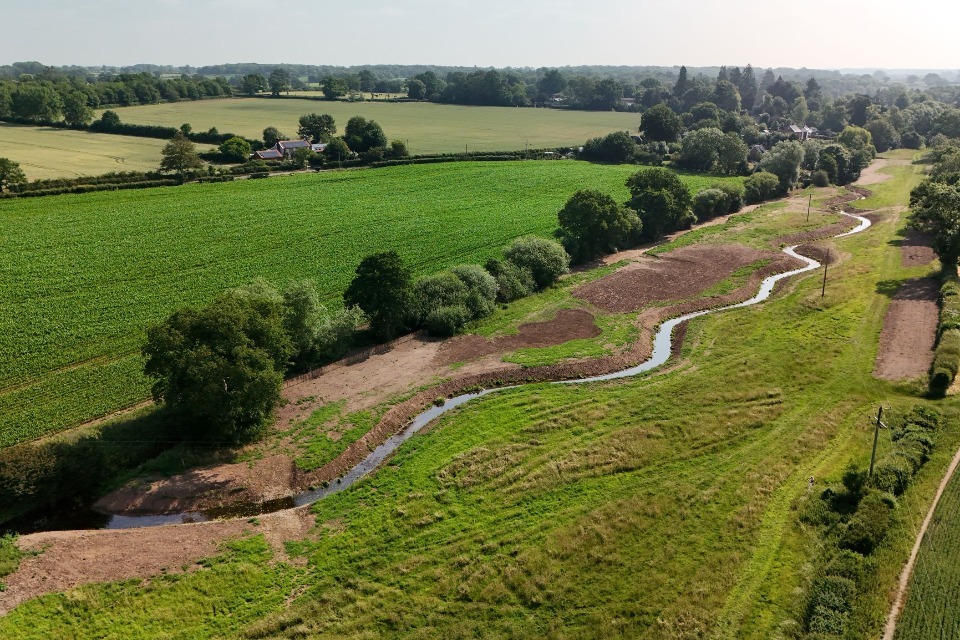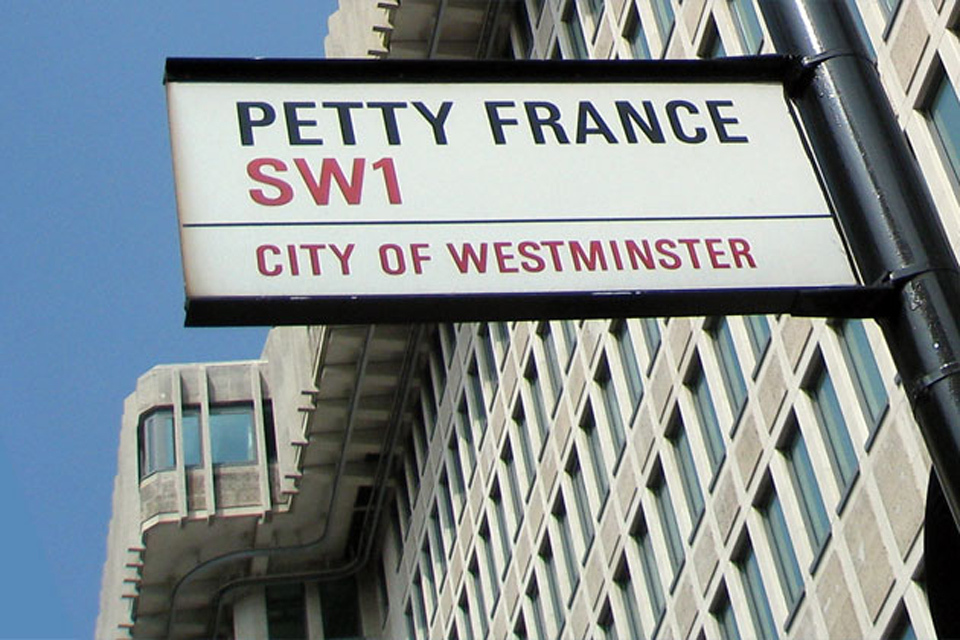My thanks to DSEI for arranging today’s event.
This is the first time that the space domain has been afforded its own keynote; therefore, I am delighted, that on the back of a clear articulation of the importance of space and associated risks and threats in recently published UK strategies, we have an opportunity today to delve deeper.
Ladies and gentlemen, as we stand on the brink of a new space age, the importance of outer space in global affairs has never been more evident. No longer just a frontier for scientific exploration, space is now a domain of strategic, economic, and political competition. Slowly, almost passively, we have come to rely on the technology of space without registering the fact of our dependence or implications of it.
I would posit that we are now in an era of Astropolitics.
Let me start with the economics of space – it’s all about the Benjamins.
The global space economy is on track to surpass $1tn by 2035.
18%, or £450Bn, that’s about a fifth of the UK’s economy is underpinned by space-based services.
The UK employs 50,000 space professionals and generates about £19bn in growth.
Conversely loss of GPS would cost the economy about £7Bn a week.
Given these facts the UK has rightly designated space a CNI sector.
For Defence, it is important to situate space within the changing character of warfare.
Future conflict is unlikely to be fought in neat, sequential campaigns.
Instead, warfare will be hyperactive and defined by engagements that will be extended in space and compressed in time – global, more lethal, interactive and multi-domain, and conducted at machine speed.
Vast networks of sensors, decision aids, and autonomous effectors will dominate the battlefield. The traditional rhythm of sense, decide, act is collapsing into milliseconds, compressing decision cycles beyond human cognition. Domain dominance is reducing and the disintermediation of effects – my £50 word for the day – is becoming vital.
A new recce/strike contest is emerging. Finders and strikers — thousands of sensors linked to precision effectors — will contest with hiders, shielders and blinders operating across the electromagnetic spectrum. The side that can sense globally, decide faster and strike with precision will seize the initiative.
In this environment, space is not a backdrop but a central nervous system. It fuels this acceleration — from satellite-enabled targeting webs, to persistent ISR, to resilient communications and data layers — and it will also be a primary target.
Hyperactive warfare makes clear that assured access to space and the ability to fight through disruption will be decisive for deterrence and victory.
Put simply, the integrated force can’t understand, move, communicate, or fight without assured space access and space delivered effects.
Therefore one must conclude that space literally fuels our way of life and underpins our way of war.
This economic and military dependency on space is increasingly being held at risk by space risks and threats.
Risks include space weather and of course congestion.
The dramatic reduction in launch costs has seen the democratisation of space. There are now over 80 space faring nations.
To bring the challenge to life for you UK Space Command tracks about 45,000 objects in orbit including about 9000 satellites. We have seen about 150 launches so far this year and 3 satellite or rocket bodies deorbit and re-enter the earth’s atmosphere daily.
The threat is also growing — in scale, in sophistication, and in speed.
Over the past year, China has conducted close-proximity operations, deployed dual-use inspector satellites, and integrated kinetic, directed-energy, AI, and cyber tools into a formidable counterspace arsenal.
There are now 20 counterspace systems in GEO, and over 200 in LEO — ready, rehearsed, and operational.
This is not an emerging threat — it is here, now, and active.
So, what must be done?
Well, I’d posit that the UK must now be more assertive in defending our national interests and our freedom of action in space.
Access is no longer enough. We must be able to control space, defend our assets, and — if required — deny its use to hostile actors.
Passive resilience is insufficient. We require persistent domain awareness and credible counterspace capabilities if we are to deter, endure a first strike — and if necessary, fight through and win.
No one wants a war in space, and it is certainly not inevitable.
But we must be clear eyed about these challenges to our vital national interests.
Equally though, we must be optimistic and excited by the strategic opportunity that space affords the UK.
And I’m pleased to say we are making progress.
We have been working across Government to alight on priorities and reestablish effective governance. The Cabinet Office has led efforts to cohere a One Space enterprise, set national objectives and prioritise capability investment choices to maximise finite resources, and dare I say it, prevent sideways energy.
Over the last year UK Space Command has launched the UK’s first military satellite in 13 years, we’ve opened a state-of-the-art National Space Operations Centre, we’ve invested over £300 million in satellites and software and accelerated operational integration – we have seen a 500% rise in space outputs from all our units.
Moreover, the recently published SDR, NSS and IS have elevated space to heart of national strategy.
They collectively recognise that we urgently need to build a modern, agile, and resilient infrastructure for both the defence and civil space enterprise, one capable of meeting the threats, mitigating the risks, preparing for the challenges and seizing the opportunities.
Chapter 7.5 of the SDR marks a turning point. It elevates space to parity with the traditional domains — recognising it as the keystone of modern, multi-domain operations.
It issues a clear strategic imperative to build a resilient, hybrid, and integrated UK space enterprise — one able to deter threats, assure critical services, and deliver strategic advantage in an increasingly hostile domain.
It sets out three priorities.
Firstly, space control.
We will invest in Space Domain Awareness capabilities, counterspace systems – both on-orbit and terrestrial – and sophisticated AI enabled command and control, to allow us to control the domain at a time and place of our choosing.
Secondly, Decision Advantage.
SATCOM and data relays are fundamental to understanding the battlespace and communicating decisions effectively.
Finally, Sense to enable ‘Understand’ and ‘Strike’ functions. Space based ISR to globally see, warn and track threats, and target with precision.
And as has been trailed, all of this will be hung off an all domain/all classification Digital Targeting Web.
We are not going to do this alone – Space is the ultimate team sport. So being clear on what needs to be nationally separable capability – to assure effects and provide us strategic autonomy – and what we can collaborate on with allies, and access through commercial is seminal to our force design.
We recognize that to keep pace with the threats and tech we need to move much faster and exploit commercial industry.
If the character of war is changing, then so too must our model of acquisition. The uncomfortable truth is that our procurement timelines — 20 years for an aircraft, 10 years for a new missile, decades for submarines — are out of step with the speed of technological change.
We need a different mindset — one that embraces Volume, Velocity, and Endurance (V2E). Defence must learn from commercial practice test, iterate, spiral-develop, and focus on scalable architectures. SpaceX, with a third of the resources of its competitor, succeeded because it tested, failed fast, and iterated at pace.
For Space Command, this means three things.
First, Innovation at scale — we cannot spread our bets thinly; we must prioritise and back winners in vertically aligned programmes like space control/ISAM, SATCOM, and ISR.
These verticals will need to be supported by horizontally integrated tech like AI, quantum, advanced propulsion, and next gen sensors.
Second, we need to be a better buyer — industry tells us often that defence makes it harder than it needs to be. We must break the cycle of procurement strategies that reward delay and cost-overrun, and instead reward speed, iteration, and delivery of usable capability at scale.
Third, the SDR recommends that the NAD prioritises a Space Portfolio to help us adopt the right architecture.
Data is the coin of the realm, hardware in many instances is an expensive overhead. We need to ride the technology wave, not chase 20th-century solutions to 21st Century problems. Smaller, cheaper, AI enabled and more numerous systems — we must augment, and in some cases replace, exquisite but slow-to-field platforms.
If we are to credibly deter adversaries who are fielding counterspace systems at scale we cannot afford to remain slow adopters. Our acquisition system must be as agile as the technology itself.
If we get it right, it’s a national opportunity. UK investment in space will not only provide the military with the capability we need to support the integrated force, become a space leader in NATO and support our allies, but, it will also enable us to protect and defend our vital national interests, and, critically, it will drive growth into our economy.
So let me try and bring all that together.
As our dependency increases and space becomes increasingly contested and congested, and as we deepen our understanding of the myriad hazards in orbit, the UK remains committed to ensuring we retain the freedom to operate in, through and from space.
This is critical to our economy and prosperity, and our ability, as individuals as much as a nation, to understand, communicate, navigate, and, in Defence’s case, fight.
Defence is contributing to a wholesale transformation of Britain’s space approach.
And events like today will be critical to success to improve national space IQ and bring to life the risks, the threats, and to seize the opportunities.
We must treat the UK’s space blindness to the threat that counter space systems pose to our economy and national security and defence.
Defence must be more assertive in defending our national interests and our freedom of action in space.
The SDR, the National Security Strategy, and the Industrial Strategy provide the ends of UK space ambition.
Now we must define — and deliver — the ways and means.
We know what the right-hand side of the slide looks like, we now need to chart a coherent and resourced course from where we are to where we want to be by 2035.
As one space enterprise, across civil, military, and commercial domains.
The direction is clear. The time is now. The cost of inaction is rising.
To secure the UK’s future as a competitive space power by 2035 – our ambition must be matched by boldness, urgency, investment, and above all else leadership.
Thank you.






